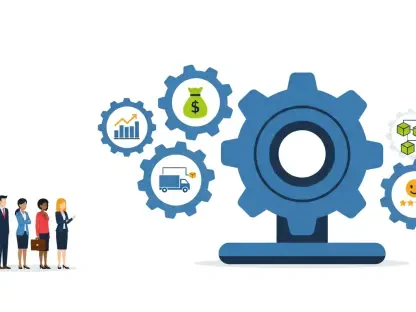The Digital Accessibility Landscape: Importance and Relevance
In an era where digital platforms dominate commerce, education, and social interaction, the significance of accessibility cannot be overstated, with over 1 billion people worldwide living with disabilities who often face barriers in online environments. This staggering statistic underscores a pressing need for inclusive design as businesses strive to reach broader audiences and comply with legal mandates. Digital accessibility has evolved from a niche concern to a cornerstone of corporate responsibility, driven by the realization that an inaccessible website or app can alienate millions of potential users.
The scope of accessibility extends beyond mere compliance, becoming a critical business need as digital interactions shape customer engagement and brand perception. Companies across industries are recognizing that inclusivity is not just ethical but also a competitive advantage, enhancing user experience and expanding market reach. With the rise of e-commerce and online learning, ensuring that digital content is usable by everyone, including those with visual, auditory, or motor impairments, is paramount.
Key players like AudioEye have emerged as leaders in this space, alongside a regulatory framework that includes the Americans with Disabilities Act (ADA) and the European Accessibility Act (EAA), which set strict standards for digital inclusivity. SaaS platforms play a pivotal role by offering scalable solutions that help organizations meet these requirements efficiently. As the industry grows, such tools are becoming indispensable for businesses aiming to create equitable digital experiences while navigating complex legal landscapes.
AudioEye’s Innovative Contribution to Accessibility
Cutting-Edge Technology and Hybrid Approach
AudioEye stands out in the accessibility sector through its pioneering blend of AI-driven automation and human expertise, delivering real-time solutions that address digital barriers instantly. This hybrid model ensures that websites and applications are not only compliant with standards like the Web Content Accessibility Guidelines (WCAG) but also genuinely usable for individuals with disabilities. The company’s platform executes an impressive 1.3 billion automated fixes daily, showcasing the power of technology in tackling accessibility at scale.
What sets AudioEye apart is its ability to identify up to 350% more issues than competing solutions, a capability that stems from combining machine precision with human insight for nuanced problem-solving. This approach mitigates errors that pure automation might overlook, ensuring comprehensive coverage of accessibility challenges. Such innovation reflects a deep understanding of the diverse needs within the disabled community, making digital spaces more welcoming.
Market Impact and Validation Through Awards
The recognition of AudioEye in the 2025 SaaS Awards, alongside esteemed SaaS companies like Gong and PagerDuty, marks a significant milestone in validating its contributions to the industry. This accolade highlights the company’s commitment to responsible innovation, setting it apart as a benchmark for others in the field. The award underscores the growing importance of accessibility solutions within the broader SaaS ecosystem, where impact and ethics are increasingly valued.
Industry leaders have lauded AudioEye’s achievements, with Annabelle Whittall, COO of The Cloud Awards, noting that the company has redefined standards for digital inclusivity. This praise reflects a broader acknowledgment of AudioEye’s role in driving meaningful change through technology. The award serves as a testament to the tangible outcomes delivered by its platform, reinforcing trust among businesses seeking reliable accessibility partners.
Challenges in Achieving Digital Accessibility
Navigating the path to digital accessibility presents numerous hurdles for organizations, particularly in mastering the technical intricacies required to meet global standards. Many businesses struggle with outdated systems or lack the in-house expertise to implement effective solutions, often resulting in partial compliance that leaves gaps in user experience. These technical barriers can deter even well-intentioned companies from achieving full inclusivity.
Beyond technology, the risk of legal repercussions looms large, as non-compliance with regulations like the ADA can lead to costly lawsuits and reputational damage. The complexity of balancing automated tools with the need for human oversight further complicates efforts, as over-reliance on AI may miss context-specific issues, while manual processes can be slow and resource-intensive. This dual challenge requires a thoughtful approach to ensure both efficiency and accuracy.
Partnering with proven providers like AudioEye offers a viable strategy to overcome these obstacles, providing businesses with tools that blend automation and expert input for optimal results. Such collaborations enable organizations to stay ahead of compliance demands while focusing on core operations. By leveraging established platforms, companies can address accessibility challenges more effectively, turning a potential liability into a strength.
Regulatory Environment Shaping Accessibility Standards
The regulatory landscape for digital accessibility is becoming increasingly stringent, with laws like the ADA in the United States and the EAA in Europe mandating inclusivity across online platforms. These frameworks aim to ensure that individuals with disabilities have equal access to digital content, pushing businesses to prioritize compliance as a fundamental aspect of their operations. Enforcement of these regulations has intensified, with penalties for non-compliance growing more severe.
This heightened scrutiny places significant pressure on organizations to adopt solutions that align with legal requirements, as failure to do so can result in substantial financial and legal consequences. Governments worldwide are stepping up efforts to monitor adherence, making accessibility a non-negotiable element of digital strategy. The evolving nature of these laws also means that businesses must remain agile to adapt to new mandates.
AudioEye’s platform addresses these pressures by offering up to 400% greater legal protection compared to other solutions, helping organizations mitigate risks associated with non-compliance. By proactively identifying and fixing accessibility issues, the company provides a safety net for businesses navigating this complex regulatory terrain. This capability is especially critical as enforcement trends continue to tighten from 2025 onward, shaping a future where compliance is integral to digital success.
Future Outlook for Digital Accessibility and SaaS Solutions
Looking ahead, the trajectory of digital accessibility points toward greater integration of emerging technologies like AI, which promise to scale solutions and address increasingly sophisticated challenges. These advancements could revolutionize how accessibility is managed, enabling faster identification of issues and more personalized user experiences. The potential for AI to adapt to individual needs in real time offers a glimpse into a more inclusive digital landscape.
However, potential disruptors such as stricter global regulations and shifting consumer expectations for seamless, inclusive experiences will likely challenge the status quo. As societies demand greater accountability from businesses, the pressure to innovate while maintaining ethical standards will intensify. SaaS providers must anticipate these shifts, ensuring their solutions remain relevant amid changing societal and legal dynamics.
AudioEye is well-positioned to lead in this evolving space, driving innovation and setting new benchmarks for the SaaS industry through its commitment to accessibility. Its proactive approach to addressing both current and future needs places it at the forefront of a movement toward universal digital inclusivity. As the industry progresses from 2025 to 2027, AudioEye’s influence will likely shape how businesses and technologies adapt to emerging demands.
Conclusion: AudioEye’s Leadership and Industry Implications
Reflecting on AudioEye’s recognition in the 2025 SaaS Awards, it is clear that the company has cemented its role as a trailblazer in advancing digital accessibility and compliance. This achievement highlights a pivotal moment where technology and ethics converge to create impactful solutions for a global challenge. The company’s efforts stand as a beacon for others in the SaaS sector, demonstrating the value of prioritizing inclusivity.
Moving forward, businesses are encouraged to deepen investments in innovative platforms like AudioEye’s to build a more accessible digital ecosystem. A strategic focus on partnerships with trusted providers can help organizations not only meet regulatory demands but also foster goodwill among diverse user bases. Such steps promise to transform accessibility from a compliance burden into a catalyst for growth.
Additionally, the industry is urged to anticipate evolving standards by supporting research and development in AI-driven accessibility tools. This proactive stance can ensure that digital spaces remain inclusive as user needs and technologies advance. AudioEye’s journey offers a roadmap for sustained success, emphasizing that accessibility is both a moral imperative and a business opportunity worth pursuing.









